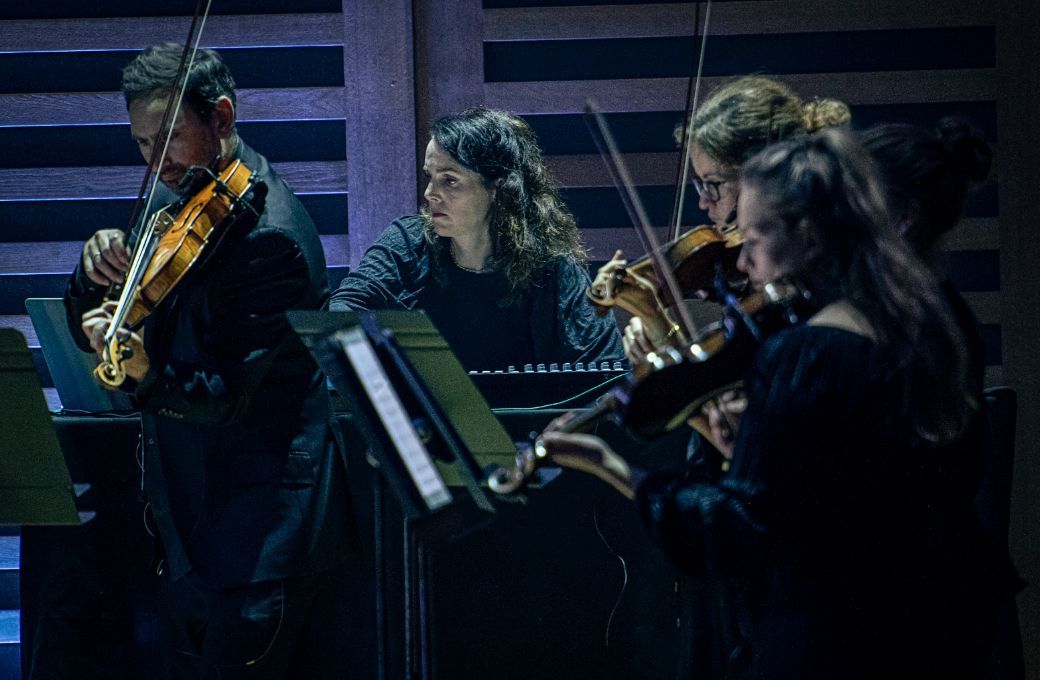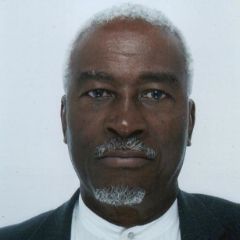The “Sound Unwrapped” season that Kings Place has been pursuing entered its autumn phase with its Resident Ensemble, Aurora Orchestra, teaming up with ex-Wunderkind Kit Armstrong for a programme of four works speaking to each other across the centuries. Excellent performances in the first half were somewhat undone by histrionics in the second, with Aurora trying a little too hard in pursuit of its laudable mission to “rethink the concert format”.
There was sweetness and light a-plenty in Nico Muhly’s All Perfections Keep, receiving its UK premiere. It is scored for string quartet and trombone and is a “reimagining” of Dowland’s lute song I saw my lady weeping. The trombone assumed the character of a suave bass-baritone sporting an assured lower range and a falsetto reminiscent of a fine countertenor. Opening with a dark and doleful statement, it blossomed into a lively conversation-piece – tasteful talk between close friends in convivial surroundings. Muhly’s writing, full of beautiful lines woven through sensuous harmonies, was performed with effortless grace and charm. Gold stars all round, with an added smiling emoji for trombonist Matthew Gee.
Also receiving its UK premiere was Caroline Shaw’s Concerto for Harpsichord and Strings, in which Aurora was joined by Kit Armstrong. The shape of the piece reminded me of a dramatic scena from the era of Sturm und Drang; passion tempered by good manners and genteel decorum. Its gestures were well-conceived, producing a narrative that unfolded in the manner of one of those giant tapestries depicting a classical scene. There was just the right balance of tone and colour between Armstrong’s clear-cut fingerwork and the wash of sound laid down by the twelve string players. One knew the threads were there, but they remained unnoticed by the ears.
Armstrong and Aurora then gave a delightful performance of Bach’s Harpsichord Concerto no.1 in D minor, a work that the soloist clearly has close to his heart. The performance of the first movement was well-proportioned, with carefully measured contrasts between the unison sections and their answering by the elegant contrapuntal voices. In the slow movement Bach was at the organ, half snoozing, a brief respite from the domestic bliss of his household. Soloists and ensemble were respectful of that moment, warmly humming along to the charming sounds the master produced even in his quiet moments. The finale was played with a freshness and easy facility that spoke volumes for the artistry of both soloist and orchestra. A particular highlight was the dialogue between Armstrong and the cellos and bass – Bach fully awake, still at the organ, dazzling us with his fingers and his pedalling.

The second half was taken up with a performance of Anno, a “re-contextualizing” of Vivaldi’s Four Seasons by Anna Meredith. It began with the players making their way unto the stage, one by one, from all over the place. Once on the stage they proceeded to plough their way through the piece, and to take all year doing it. What was billed as a seamless sensation unfolded in fits-and-starts, with the material Meredith added to Vivaldi – fed by electronics – jumping out from behind flashing lights, dodging the boom of a drum machine, and wandering through the fog of a London pea-souper. Mercifully, it was brought to a close with the players turning off their tablets, and leaving the stage in the manner of Haydn’s players at the end of the Farewell Symphony. It rather put the dampeners on a great first half.


